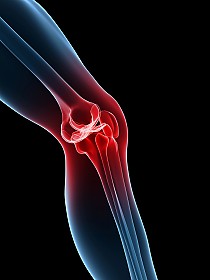 A study published in the New England Journal of Medicine found that recombinant and plasma derived factor VIII products led to similar rates of inhibitor development among children with severe hemophilia A. Severe hemophilia A is characterized by a decreased amount factor VIII, which can cause bleeding within joints and muscles. Patients typically receive prophylactic infusions of factor VIII to prevent joint damage, but in approximately 30% of these patients, factor VIII infusion can lead to the development of inhibitory antibodies. Previous research has suggested that recombinant factor VIII products may be more immunogenic than plasma-derived products, although evidence has been inconclusive. This study evaluated infusions of recombinant and plasma-derived factor VIII among a cohort of 574 consecutive, previously untreated severe hemophilia A patients who were born between 2000 and 2010. Among these patients, 177 patients developed inhibitory antibodies (cumulative incidence of 32.4%) and 116 patients had high-titer inhibitors (cumulative incidence of 22.4%). There was no significant difference in the risk of inhibitor development between patients receiving recombinant products and those receiving plasma-derived products. In addition, the content of von Willebrand factor and switching between recombinant and plasma-derived products were not associated with inhibitor development. However, second-generation full-length recombinant products were associated with a greater risk of inhibitor development than third-generation full-length recombinant products (adjusted hazard ratio, 1.60; 95% CI: 1.08-2.37). Further research is needed to explain the mechanisms behind this difference.
A study published in the New England Journal of Medicine found that recombinant and plasma derived factor VIII products led to similar rates of inhibitor development among children with severe hemophilia A. Severe hemophilia A is characterized by a decreased amount factor VIII, which can cause bleeding within joints and muscles. Patients typically receive prophylactic infusions of factor VIII to prevent joint damage, but in approximately 30% of these patients, factor VIII infusion can lead to the development of inhibitory antibodies. Previous research has suggested that recombinant factor VIII products may be more immunogenic than plasma-derived products, although evidence has been inconclusive. This study evaluated infusions of recombinant and plasma-derived factor VIII among a cohort of 574 consecutive, previously untreated severe hemophilia A patients who were born between 2000 and 2010. Among these patients, 177 patients developed inhibitory antibodies (cumulative incidence of 32.4%) and 116 patients had high-titer inhibitors (cumulative incidence of 22.4%). There was no significant difference in the risk of inhibitor development between patients receiving recombinant products and those receiving plasma-derived products. In addition, the content of von Willebrand factor and switching between recombinant and plasma-derived products were not associated with inhibitor development. However, second-generation full-length recombinant products were associated with a greater risk of inhibitor development than third-generation full-length recombinant products (adjusted hazard ratio, 1.60; 95% CI: 1.08-2.37). Further research is needed to explain the mechanisms behind this difference.
Reference
1. Gouw SC, van der Bom JG, Ljung R, Escuriola C, Cid AR, Claeyssens-Donadel S, van Geet C, Kenet G, Makipernaa A, Molinari AC, Muntean W, Kobelt R, Rivard G, Santagostino E, Thomas A, van den Berg HM. Factor VIII products and inhibitor development in severe hemophilia A. N Engl J Med 2013;368: 231-9.
